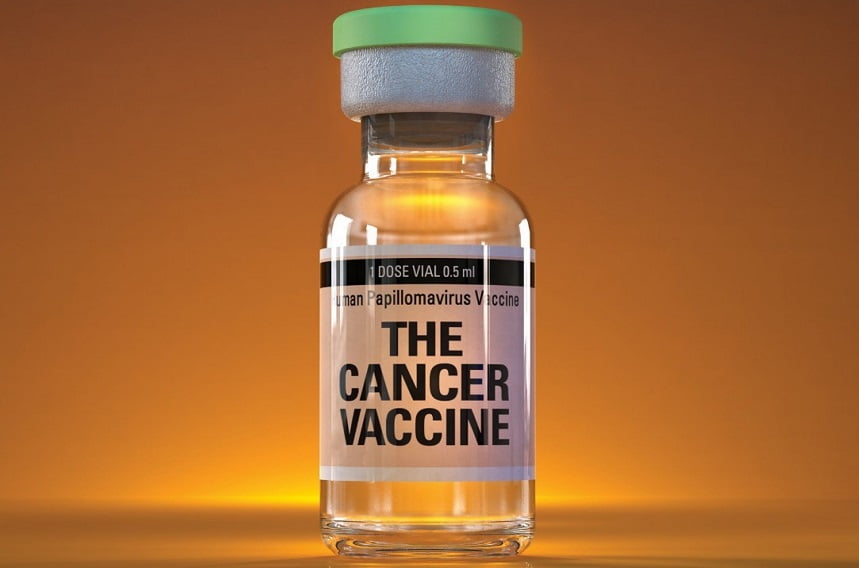Neoantigens and personalized vaccines are the new frontier in cancer treatment, offering the promise of more effective and less invasive therapies.
The idea of using a patient's own immune system to fight cancer is revolutionizing oncology.
Let's explore what these vaccines are, how they work, and recent advances in this area.(learn more about Cancer Vaccines)
Browse Content

What Are Neoantigens?
Neoantigens are unique proteins that arise in cancer cells due to specific mutations.
These proteins are not present in normal cells, making neoantigens ideal targets for immunotherapy.
Identification of neoantigens begins with sequencing the tumor's genome, using advanced bioinformatics techniques to identify specific mutations that produce these unique proteins.
Identification of Neoantigens
Tumor genomic sequencing is the first step to identifying neoantigens.
Bioinformatics tools help predict which mutations are most likely to generate an immune response.
This information is then used to develop personalized vaccines that teach the immune system to recognize and attack tumor cells.
How Do Personalized Vaccines Work?
Personalized vaccines are developed based on each patient's tumor-specific neoantigens. The process involves several steps:
- Genomic Sequencing: Tumor DNA is sequenced to identify unique mutations.
- Neoantigen Prediction: Bioinformatics tools are used to identify the most promising neoantigens.
- Vaccine Development: Neoantigens are synthesized and incorporated into a vaccine, which can be based on peptides, mRNA or other platforms.
- Administration and Monitoring: The vaccine is administered to the patient, and the immune response is monitored to assess effectiveness.
Types of Personalized Vaccines
- Peptide Vaccines: They use small protein fragments (peptides) derived from neoantigens to stimulate the immune system.
- mRNA vaccines: They encode neoantigens in mRNA, which are translated into proteins by the body, provoking an immunological response.
- Dendritic Cell Vaccines: They use the patient's own dendritic cells loaded with neoantigens to initiate an immunological response【110†source】.
Recent Advances and Promising Research
Promising Clinical Trials
Recent clinical trials have shown promising results for personalized vaccines.
The mRNA-4157/V940 vaccine, developed by Moderna and Merck, combined with pembrolizumab, showed a significant immune response in melanoma patients.
Additionally, personalized vaccines for pancreatic cancer, such as those developed by Memorial Sloan Kettering Cancer Center, have also demonstrated efficacy in stimulating specific immune responses.
Nanotechnology and Vaccine Delivery
Researchers are exploring the use of nanotechnology to improve the effectiveness of personalized vaccines.
Nanoparticles can be used to deliver neoantigens more effectively to immune cells, increasing the immune response and treatment efficacy.
These advances can reduce costs and make vaccines more accessible to a larger part of the population.
Challenges and Future Perspectives
Challenges in Implementation
Despite advances, there are still significant challenges in implementing personalized vaccines.
The heterogeneity of tumors, the constant evolution of cancer cells and the complexity of the tumor microenvironment are obstacles that need to be overcome.
Furthermore, personalizing vaccines requires advanced technologies and significant resources, making them initially expensive and inaccessible for many patients.
The Future of Personalized Vaccines
The future of personalized vaccines is promising. Combining these vaccines with other forms of immunotherapy, such as immune checkpoint inhibitors, may further improve clinical outcomes.
Continued innovation in technologies such as mRNA and nanotechnology can also reduce costs and accelerate the development of personalized vaccines.
My opinion
Let's face it: the potential of personalized vaccines is simply fascinating.
Just imagine, you have a treatment that not only attacks the cancer, but does so in such a specific way that it's almost as if it's narrowing down a target with surgical precision.
It's a true dream for anyone who has ever had to deal with the devastating side effects of traditional therapies such as chemotherapy.
I believe we are about to experience a revolution in the way we treat cancer.
And I'm not just talking about incremental advancement. I'm talking about a paradigm shift, where treatment is tailor-made, just like a custom-made suit.
Isn't it wonderful to think that one day, cancer could be treated with the same specificity as we treat a bacterial infection with antibiotics?
Of course, there are challenges. The initial cost, complexity of producing these vaccines, and the need for advanced technology are real barriers.
But look, all great innovations have faced similar challenges.
What we need is continued investment, both in research and in infrastructure, so that these technologies become accessible to everyone who needs them.
I believe that, over time, personalized vaccines will become more affordable.
Just as we have seen with advances in other areas of medicine, the cost will decrease as the technology becomes more common and more refined.
The key will be continued collaboration between scientists, doctors and the pharmaceutical industry.
Ultimately, personalized cancer vaccines are not just a promise for the future – they are becoming a reality now.
And that's something we should all celebrate and support. We are on the cusp of a new era in oncology, and I, for one, can't wait to see where this takes us.
Conclusion
Personalized neoantigen-based cancer vaccines represent an exciting frontier in oncology.
With advances in technologies like mRNA and nanotechnology, these vaccines are starting to show promising results in clinical trials.
While there are still challenges to overcome, the future of these vaccines looks bright.
It's an exciting time for medicine and technology, and I look forward to seeing how these innovations continue to evolve and positively impact patients' lives.







